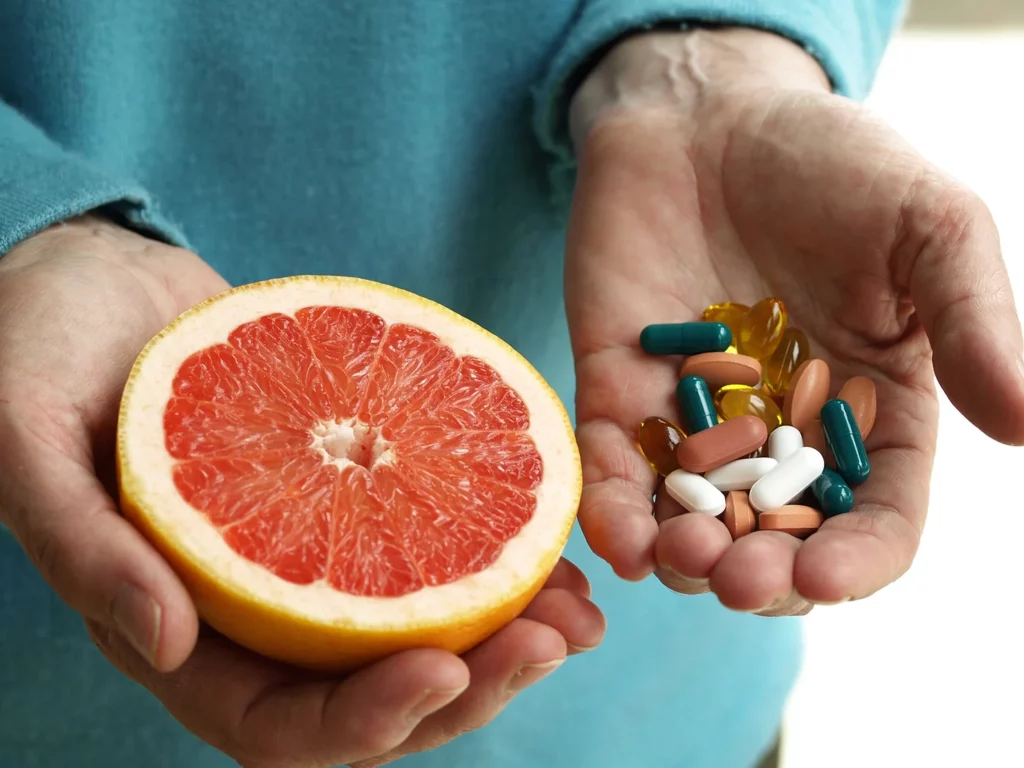I once had a family member contact me about a supplement he was taking from a large, well-known company that claimed to have some of the best supplements and ingredients. He asked me if it was a good supplement. After reviewing the contents I informed him that although his supplement had elements in it that could be beneficial, the dosage was far too low to be really considered therapeutic for what the supplement claimed it would do.
I had another friend that brought me an immune building supplement she was giving to her son. It had a popular, well-studied immune boosting botanical in it. Unfortunately, the part of the plant they were using was not the truly therapeutic part of the plant. They could claim it on the bottle because it was technically from the right plant, but not the right PART of the plant that contained the therapeutic ingredients needed to actually impact the immune system. Believe it or not, it can matter which part of the plant is used!
Another family member showed me a supplement she was taking that contained all good ingredients for the issue she was trying to tackle, but there were so many ingredients that each of the items had such low doses to fit it all into one capsule that it decreased the therapeutic benefit of the product.
Yet another family member showed me a probiotic product he was giving his child. It contained one beneficial strain, and only one. I tried to explain that multiple strains are proven to be more beneficial because all strains serve a different purpose. One strain is like only feeding your child apples and never giving them another fruit to get the nutrient benefit from a variety of fruits. All probiotics are NOT created equal and more is not necessarily better. You may not even need one at all depending on your diet and in some cases they can cause an imbalance.
These are common problems with supplements, and, unfortunately, it takes some extra education to know some of these things. The average person has no idea about herbal or botanical support or scientifically based dosage requirements! That’s why being evaluated and getting quality products from a professional really does matter. Believe me, I was one of those people years ago, but now I’m here to tell you to stop wasting your money!
1. Quality Matters
Unfortunately, our supplement industry in America is completely unregulated unlike Australia and Canada, both countries that have a governing agency testing products for quality. Random testing of vitamins at popular drugstores in America were found to contain additives or ingredients not on the label some of which were potentially harmful. They also found supplements that contained NONE of the ingredient that was on the label. In my head I hear the septa from Game of Thrones: “Shame. Shame. Shame.”
Finding a quality company seems impossible when you have no idea which ones are good or bad on the shelves of supplements in front of you. You may have questions like:
-Where did the ingredients come from?
-Are the ingredients organic?
-Are they synthetic and does that matter for this nutrient?
-Are they properly balanced with other nutrients needed to work synergistically?
-and more!
A professional, like a clinical nutritionist, is especially knowledgeable about supplement companies and quality to make sure you get the actual therapeutic impact you want from your supplements.
2. Is it Evidence-Based?
There are many forms of vitamins or minerals and some are more available than others to be used by our body. A professional will know if the form of the vitamin you are using is the most available for what you need it for based on scientific study. Also, there many conditions or symptoms that are multifactorial. Meaning, it is likely caused by a myriad of deficiencies or factors and not just one. Random clinical trials usually only study one or two vitamins or minerals at a time for a given condition. Unfortunately, certain conditions need more attention and even though you read that article on that study on a popular website that vitamin D is good for all things, you might wonder why you don’t actually see any positive changes in symptoms.
The article said vitamin D would help with this…why don’t I feel better?
It’s not always as cut and dry as all that. You could spend years trying different things and having nothing work all because it wasn’t the right thing for you.
Professionals, such as clinical nutritionists, know if the supplement is well studied and shown to have a benefit for your needs. Many supplements being sold have either not been adequately studied or have been shown in clinical trials to not have a therapeutic benefit for a particular condition. Don’t waste your money without knowing if you’re getting the right product or if you’re using something you aren’t actually deficient in to begin with.
3. Get Evaluated by a Clinical Nutritionist to Determine Need
Having what you’re eating as well as your recent labs evaluated by a clinical nutritionist is helpful in determining if your nutrient intake might be less than optimal or deficient. Additionally, certain physical signs and symptoms such as things seen in the hair, skin or nails can help us see if you’re lacking in certain nutrients. You want to make sure you’re adding in foods or supplements to help with those weaknesses, but only if you need them, otherwise you might be wasting your money.
4. Self-Supplementing Can Be Dangerous!
I’ve heard many stories of people who have become sick, injured, or died because of self-supplementing. I recently heard a story from a colleague who had a client come to her who was self-supplementing because he read it was good for him and would help. Unfortunately for him, he had done too much of this for too long and the damage was permanent and ultimately he passed away within a few months. This a dramatic story and not one I hear every day, but it shows that we need to treat supplements with respect and not assume they are healthy because they are “natural” or because you didn’t have to get them from a doctor. Essential oils are one of those things that need to be used properly and with respect as well.
Quality, form, and amount of a nutrient matter and can help, but it can also hurt. When we take in more than we should or take nutrients in the wrong form it can be toxic to our bodies. Also, certain nutrients use the same pathway as other nutrients. If you take too much of one thing it could block another thing from being absorbed efficiently, creating a deficiency of something else. The proper balance of some nutrients to others does matter. Although there aren’t many known interactions, there are some interactions with medications as well. If you self-supplement, you may not be aware of these potential interactions.
Although serious injury and death are more unlikely in most cases, it is not impossible. I encourage everyone to be properly evaluated by someone like a clinical nutritionist that is specially educated in supplements and can determine quality, need and safety. Cheaper isn’t always better. PLEASE proceed with caution. Dr. Google can lead us down the wrong path. What’s her name that writes a health blog because she’s on a health journey may not actually know as much as she things she does. Be careful with blogs, especially if they don’t cite their sources! Also, if they do cite their sources make sure they are from legit, trustworthy sources and that they aren’t just citing another blogger.
Supplements not getting you anywhere? Not feeling better? Not sure where to even start to be safe and actually positively impact your health. Enter Autumn.
Sign up today for a free 15 minute consultation with me over the phone to talk about it.
Follow me on Instagram *wink wink*





